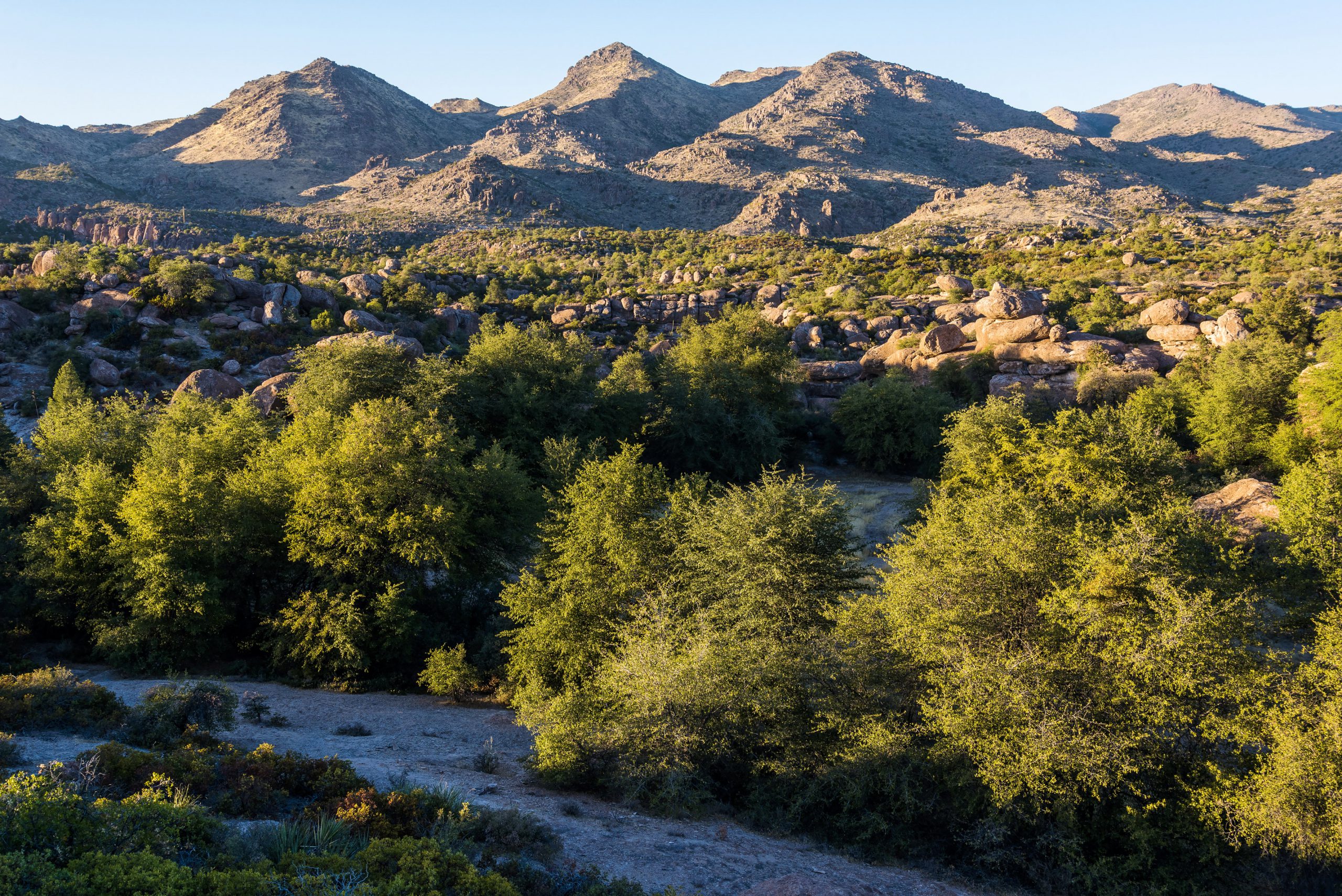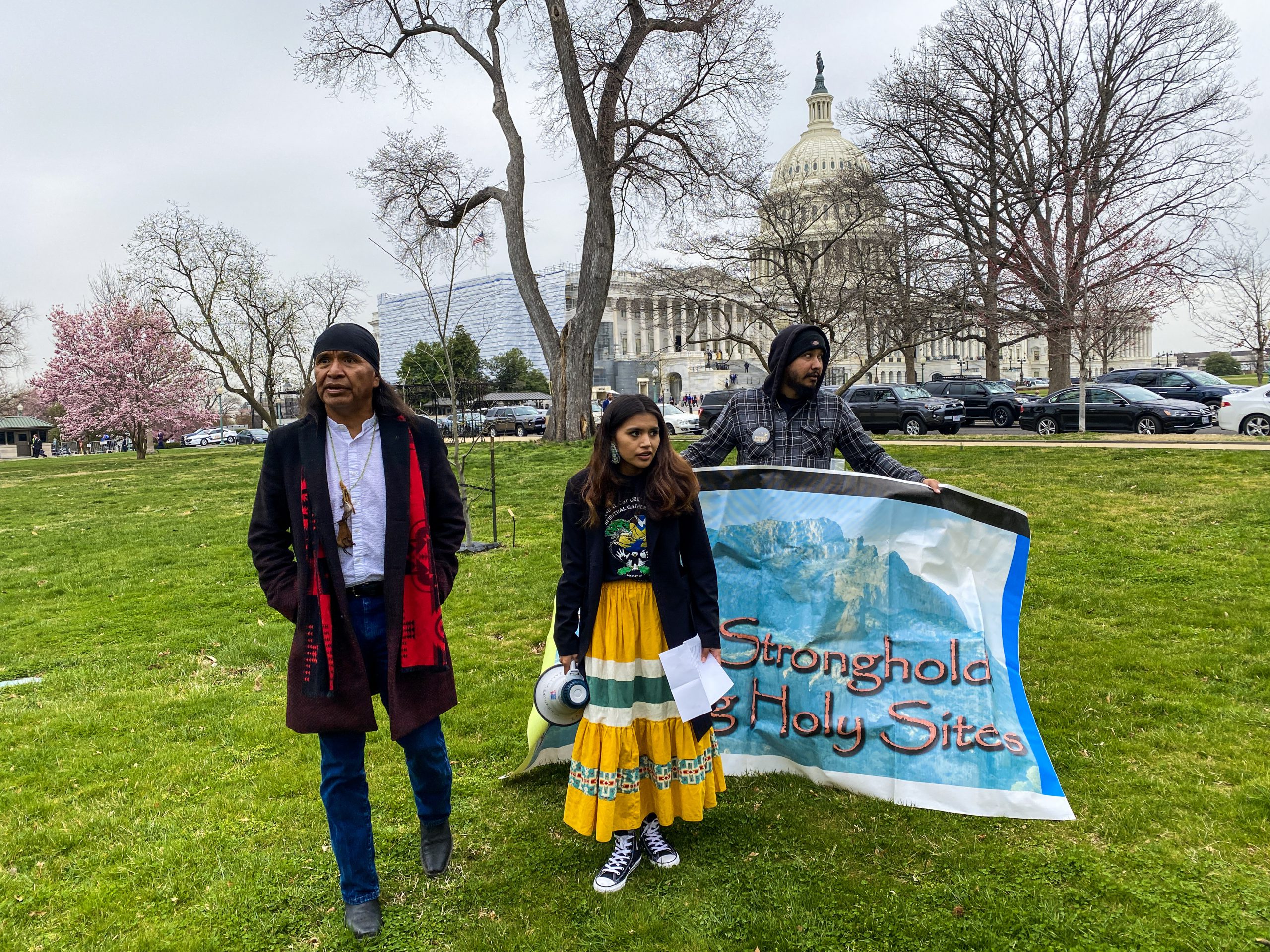Indianz.Com > News > Cronkite News: Bill to protect sacred Apache site debated on Capitol Hill
Superior mayor, tribal officials spar over bill to stop Oak Flat mine
Thursday, May 6, 2021
Cronkite News
WASHINGTON – The mayor of Superior told a House panel last month that a bill canceling a massive copper mine at Oak Flat would be “devastating” for the Pinal County town and its hopes to revitalize its economy.
“We need to create jobs and business opportunities for our youth and working adults, so our community remains viable for generations to come,” Mayor Mila Besich told a House Natural Resources subcommittee on April 13.
But while Besich testified against a bill to reverse the land deal that cleared the way for the Resolution Mine, others said the environmental and cultural danger the mine presents call for the project’s cancellation. Tribal groups in particular said the mine would destroy Oak Flat, land that the San Carlos Apache consider sacred and use for religious ceremonies and rituals.
“These are things that are absolutely essential to our identity and to our spiritual health,” said National Congress of American Indians President Fawn Sharp, when asked to balance the benefits of the mine with the cultural damage. “It’s unconscionable to think that we’re even having that question.”


House Subcommittee for Indigenous Peoples of the United States Notice
Hearing on Save Oak Flat Act (April 13, 2021)
Note: This story originally appeared on Cronkite News. It is published via a Creative Commons license. Cronkite News is produced by the Walter Cronkite School of Journalism and Mass Communication at Arizona State University.
Related Stories
House committee markup on Save Oak Flat Act and Alaska Native Tribal Health Consortium Land Transfer Act (April 28, 2021)Legislative Hearing on H.R.1884, the Save Oak Flat Act (April 13, 2021)
Bill to permanently protect sacred Apache site up for first hearing (April 8, 2021)
Advisory Council on Historic Preservation letter on sacred Apache site (March 29, 2021)
Bill introduced to protect sacred Apache site from development (March 15, 2021)
Cronkite News: Biden administration puts halt to mine at sacred Apache site (March 4, 2021)
San Carlos Apache Tribe cheers ‘right move’ to protect sacred site from copper mine (March 1, 2021)
Cronkite News: Deb Haaland shares her vision for Interior Department (March 1, 2021)
Cronkite News: Judge won’t stop copper mine on sacred Apache site (February 15, 2021)
Cronkite News: Apache Stronghold fights to protect sacred site from foreign mine (February 9, 2021)
Cronkite News: Republican pardoned in connection with Oak Flat land deal (January 21, 2021)
Search
Filed Under
Tags
More Headlines
Native America Calling: Euchee food, whale hunting and young gardeners on The Menu
Cronkite News: Navajo psychiatrist addresses mental health needs
Chuck Hoskin: Tell the whole story about the theft of tribal lands
Native America Calling: A sample of Native Guitars Tour 2024
Cronkite News: Native organization carries on horse traditions
Native America Calling: How Native literature is changing the mainstream narrative
Native America Calling: No ordinary animal
Native America Calling: Safeguards on Artificial Intelligence
NAFOA: 5 Things You Need to Know this Week
Chuck Hoskin: Cherokee Nation takes the lead for our environment
Native America Calling: Earth Day assessment for Native peoples
Cronkite News: Gathering addresses ‘epidemic’ among Native people
VIDEO: Cody Desautel on tribes and federal forest management
AUDIO: Legislative Hearing on Discussion Draft of Forest Management Bill
Native America Calling: Remembering the 1974 Navajo border town murders
More Headlines
Cronkite News: Navajo psychiatrist addresses mental health needs
Chuck Hoskin: Tell the whole story about the theft of tribal lands
Native America Calling: A sample of Native Guitars Tour 2024
Cronkite News: Native organization carries on horse traditions
Native America Calling: How Native literature is changing the mainstream narrative
Native America Calling: No ordinary animal
Native America Calling: Safeguards on Artificial Intelligence
NAFOA: 5 Things You Need to Know this Week
Chuck Hoskin: Cherokee Nation takes the lead for our environment
Native America Calling: Earth Day assessment for Native peoples
Cronkite News: Gathering addresses ‘epidemic’ among Native people
VIDEO: Cody Desautel on tribes and federal forest management
AUDIO: Legislative Hearing on Discussion Draft of Forest Management Bill
Native America Calling: Remembering the 1974 Navajo border town murders
More Headlines